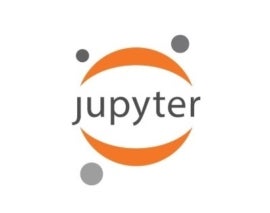This is a comparison of Google Colab vs Jupyter Notebook. Use this guide to learn more about their features, pricing, and more to help you choose your best fit.
Creating and organizing computation documents is an essential part of programming and data sciences. Most people turn to one of two popular tools — Jupyter Notebook and Google Colab — to help them manage their files.
SEE: Learn how to become a data scientist.
Jump to:
What is Google Colab?

Google Colaboratory is a freemium tool offered by Google Research that allows users to write and execute Python code in their web browsers. Colab is based on Jupyter open source and allows you to create and share computation files without having to download or install anything.
What is Jupyter Notebook?

Jupyter is a free, open-source, web-based interactive computing platform that was spun off of IPython; Jupyter Notebook is a web application that allows users to create and share computation documents with each other.
Google Colab vs. Jupyter Notebook: Comparison table
| Software | Google Colab | Jupyter Notebook |
|---|---|---|
| Starting price | $9.99 per month | Free |
| Free plan | Yes | Yes |
| Cloud based | Yes | No |
| File syncing | Yes | No |
| File sharing | Yes | No |
| Library install | No | Yes |
| File view without install | Yes | Yes |
Google Colab and Jupyter Notebook: Pricing
Google Colab and Jupyter Notebook are both free to use. Jupyter Notebook was released as an open-source tool under the liberal terms of the modified BSD license, making it 100% free to use.
Although Google Colab is also free to use, you may have to pay for advanced features as your computing needs increase. The following are the paid plans offered by Google Colab:
- Pay As You Go: For this plan, there are no fixed subscription fees; you only pay for what you use.
- Colab Pro: For $9.99 per month, you get 100 compute units per month, access to higher memory machines and the ability to use a terminal with the connected virtual machine.
- Colab Pro+: For $49.99 per month, you’ll get 500 compute units per month, faster GPUs and background execution capability.
Feature comparison: Google Colab vs. Jupyter Notebook
Cloud-based
Google Colab’s major differentiator from Jupyter Notebook is that it’s cloud-based and Jupyter isn’t. This means that if you work in Google Collab (Figure A), you don’t have to worry about downloading and installing anything to your hardware. It also means that you can rest easy knowing that your work will autosave and backup to the cloud without you having to do anything.
Figure A

Google Colab is great for people who need to work across multiple devices — such as one computer at home and one at work, or a laptop and a tablet — because it syncs seamlessly across devices.
In contrast, Jupyter Notebook is run on your local machine (Figure B), and files are saved to your hard disk. Jupyter does offer an autosaving interval (which you can change) but it doesn’t back up to a cloud, so if something happens to your machine, you’re out of luck. Jupyter can’t sync or share your files across devices without a third-party file sharing service such as Dropbox or GitHub.
Figure B

Collaboration
We couldn’t talk about Jupyter Notebook versus Google Colab without mentioning collaboration. As the name suggests, Google Colab is built to make it easy to share your notebooks with anyone — even if they’re not a data scientist. Other people can view your notebook (Figure C) without having to download any software, which is a big advantage if you regularly work with nontechies who need to be able to view the files.
Figure C

On the other hand, anyone else will need to have Jupyter Notebook installed on their device if you want to share their notebooks with them. This won’t be a hindrance if you solely work with developers, data scientists and other tech people who will already have Jupyter installed. If you work on a more diverse team, then you might want to consider Google Colab because sharing files is easier.
Library install
Since Google Colab is cloud-based, it comes preinstalled with just about every library you could need in the cloud. This means that you don’t have to separate precious disk space or time to download the libraries manually. The free version also comes with a certain level of graphic processing units, memory and run time, which can fluctuate. If you need more capacity, you can upgrade to one of the paid plans. Google doesn’t disclose limits for any of its Colab plans due to the need for flexibility.
With Jupyter Notebook, you’ll need to install each library that you want to use onto your device using pip or another package manager. You’ll also be limited by your computer’s available RAM, disk space, GPU and CPU. That being said, having the notebooks stored on your hardware versus hosted in a third-party cloud is more secure, so the manual library install can be a plus for sensitive data.
Google Colab pros and cons
Pros
- Straightforward interface that’s easy to navigate.
- Access GPU and TPU runtimes for free.
- Import compatible machine learning and data science projects from other sources.
- Automatic version control similar to Google Docs.
- Real-time collaboration capability.
- Integrates with other tools, including GitHub, Jupyter Notebook, BLACKBOX AI, Codeium, CodeSquire, Google Workspace, Neptune.ai, StrongDM, Google Drive and more.
Cons
- The free plan gives you limited resources.
- Some users reported issues with the speed of loading new databases and data frames that are present offline.
Jupyter Notebook pros and cons
Pros
- Modern, intuitive and interactive user interface.
- Supports markdown language for documentation.
- Interactive interface makes it easy for users to share images, code and text in one place.
- Supports multiple programming languages, including Python, R, and Julia.
Cons
- Some users reported that the software gets slow or crashes sometimes when working with large datasets or carrying out complex calculations.
- Some Jupyter Notebook users reported that tracking changes and collaborating using version control tools like Git can be complicated because notebooks are stored as JSON files.
Should your organization use Google Colab or Jupyter Notebook?
Both Jupyter Notebook and Google Colab may be the right choice in particular circumstances. Google Colab is an excellent choice for the entry-level developer or the nonprogrammer who wants to get started fast without having to install anything. It’s also a great idea for anyone who needs to share notebook files with people who won’t have the proper software installed on their devices. Finally, Google Colab is a must for anyone looking to back up their work to the cloud and to sync their notebooks across multiple devices — but the ease of cloud sharing means reduced data security.
Meanwhile, Jupyter is a better choice for sensitive files that need to be kept off the cloud. Installing the notebooks on your own hardware also means that you never have to worry about your GPU or runtimes getting throttled, which can happen sometimes on the Colab free accounts.
Review methodology
We reviewed both tools by gathering primary data from the vendors’ websites and documentation; this information includes features, pricing, and use cases. We also test each solution to gain firsthand experience about its usability. To learn about users’ experience, we evaluated current and past users’ feedback from third-party review sites.
Featured partners
Domo puts data to work for everyone so they can multiply their impact on the business. Underpinned by a secure data foundation, our cloud-native data experience platform makes data visible and actionable with user-friendly dashboards and apps. Domo helps companies optimize critical business processes at scale and in record time to spark bold curiosity that powers exponential business results.
Yellowfin provides a fully white-labeled, embedded analytics experience for enterprise software applications using a single integrated platform, which includes action-based dashboards, stunning data visualization, automated analysis and data storytelling. Its low code UI, together with automated alerts and AI-generated insight explanations help make it easier for your customers to realize true self-service business intelligence.
Wyn Enterprise is a scalable embedded business intelligence platform without hidden costs. It provides BI reporting, interactive dashboards, alerts and notifications, localization, multitenancy, & white-labeling in any internal or commercial app. Built for self-service BI, Wyn offers limitless visual data exploration, creating a data-driven mindset for the everyday user. Wyn’s scalable, server-based licensing model allows room for your business to grow without user fees or limits on data size.
Finding it difficult to analyze your data which is present in various files, apps, and databases? Sweat no more. Create stunning data visualizations, and discover hidden insights, all within minutes. Visually analyze your data with cool looking reports and dashboards. Track your KPI metrics. Make your decisions based on hard data. Sign up free for Zoho Analytics.





